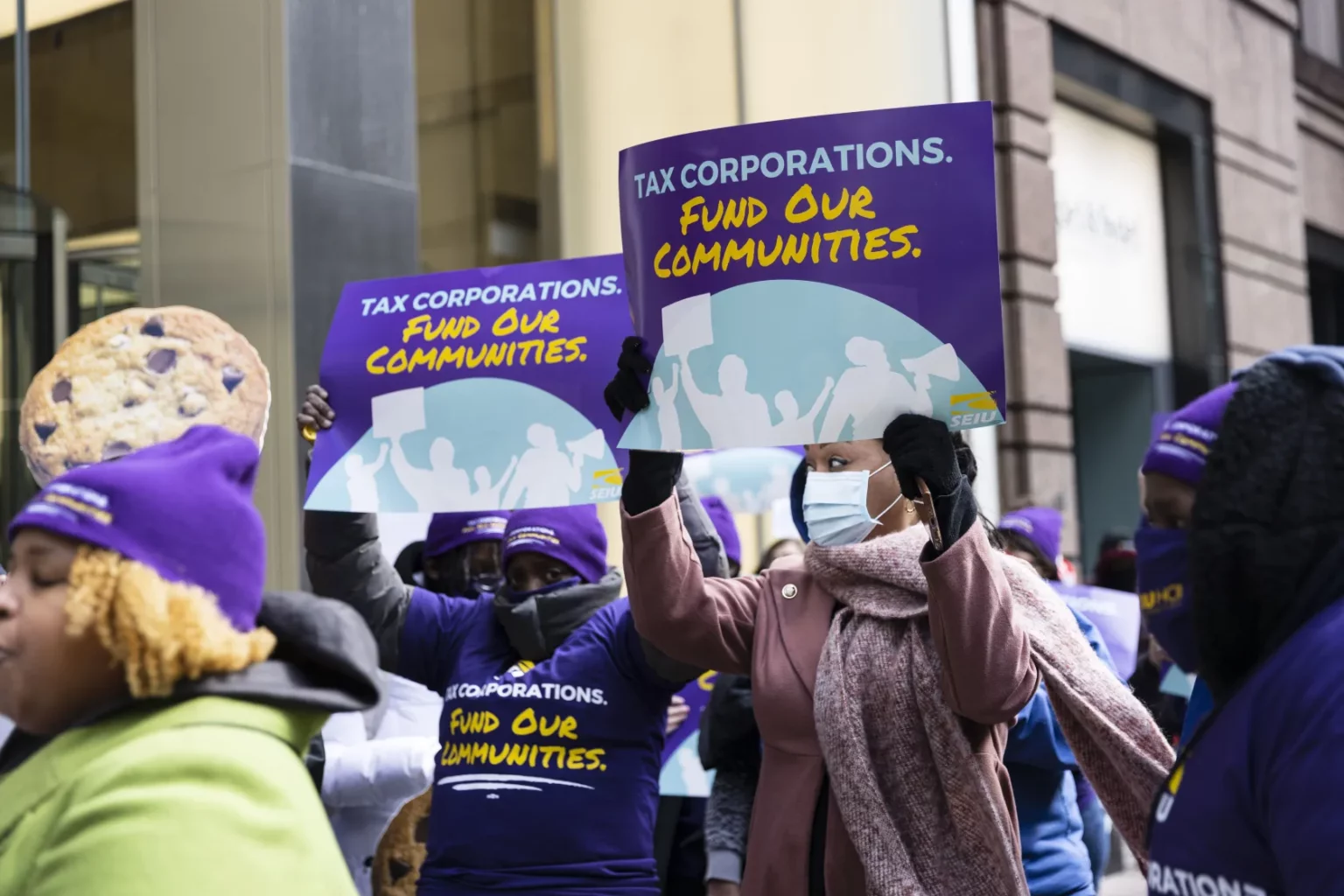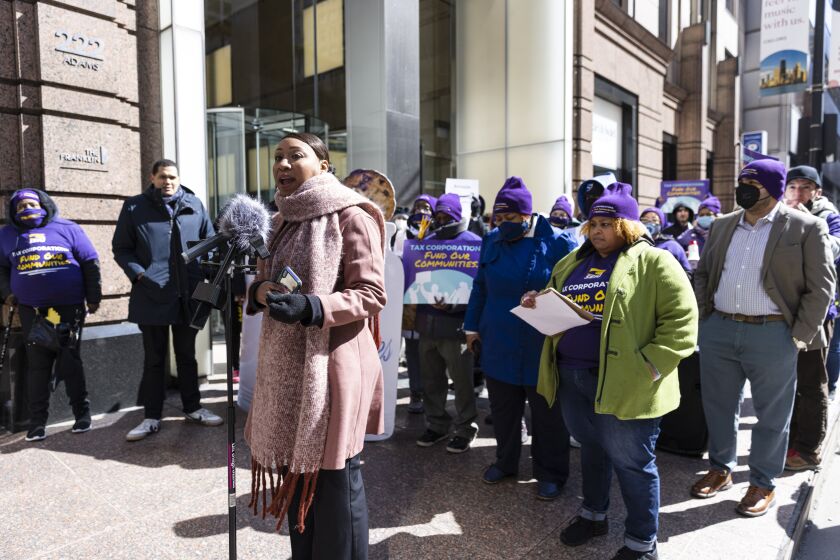News
Sun Times: SEIU members rally for ‘Babies before Bezos’

This story appeared in the Chicago Sun-Times on April 14, 2022.
The downtown rally was held on the same day the Economic Policy Institute released a report that shows 69% of Illinois corporations paid no state corporate income taxes from 2015 to 2018.

Members of the Service Employees International Union chanted “pay your fair share” alongside local elected leaders at a rally in downtown Chicago Thursday, urging companies to pay more in taxes.
Their demands were directed at Amazon and its founder, Jeff Bezos, as well as other major corporations operating in Illinois. An Economic Policy Institute report published Thursday shows from 2015 to 2018, 69% of Illinois corporations paid no state corporate income taxes.
That’s not right, said former state Rep. Litesa Wallace, who’s running for a U.S. House seat. Amazon and other big corporations are stealing cookies from an important cookie jar, Wallace said, one that could make a difference in the lives of working people.
“It seems they stole the cookies, went out on a yacht, flew up into space, and they refuse to give us anything. Well, we’re not taking these crumbs anymore. We want them to pay their fair share,” Wallace said. “We want for those who are making record profits to spread the wealth like they claim they are going to do, and put the cookies back in the cookie jar.”

If corporations paid more taxes, that money could be invested in childcare and other Illinois services in dire need of funding, said union members as they held signs that read “Babies Before Bezos.”
Amazon took issue with Wallace’s assertions.
“Amazon is not mentioned in the report in question. Amazon’s U.S. taxes reflect our investments, employee compensation, and current tax laws. In 2021, we reported $2.3 billion in federal income tax expense, $5.2 billion in other federal taxes, and more than $4 billion in state and local taxes of all types. We also collected an additional $22 billion in sales taxes for U.S. states and localities,” a company spokesperson said Friday.
“We work hard to be a good neighbor and appreciate the partnerships we have in Chicago.”
Amazon employs about 36,000 people in Illinois.
Debra Murphy, a childcare provider and SEIU member, said there is a massive under supply of childcare in Illinois. More than half of Illinois families are living in childcare deserts, Murphy said, unable to get any childcare at all. And those who do have options often can’t afford them, she said
“Childcare in Illinois is in crisis,” Murphy said. “While this was true before COVID, the pandemic made clear how this broken system, rooted in systematic racism, fails families and childcare workers alike.”
Childcare subsidies in Illinois are handled by the Department of Human Services through the Child Care Assistance Program. Applications are evaluated based on a household’s income and family size, among other considerations, and those deemed eligible can use the subsidy at a childcare center, in-home provider or other option.
But the pay is barely anything, said Murphy, a license-exempt family childcare provider who gets paid through from the DHS. She’s cared for her grandchildren, nieces and nephews the last 17 years.
Although Murphy knows her job is important, she doesn’t think her work is recognized by the state.
“I feel as though I should be paid more respect,” Murphy said. “I feel disrespected. That’s the way I look at it. It’s not about the money. Yeah, I need the money, but it’s not about the money with me, it’s respect. It’s what’s owed to me as a worker.”
Some parents receiving assistance through the state program still struggle to make the co-payments they are responsible for each month, said Brynn Seibert, director of the child care and early learning division of SEIU Illinois and Indiana.
“We believe if corporations like Amazon paid their fair share in taxes, our state would be able to provide affordable childcare to tens of thousands more families,” Seibert, said.
Editor’s note: This article was updated to include Amazon’s response.